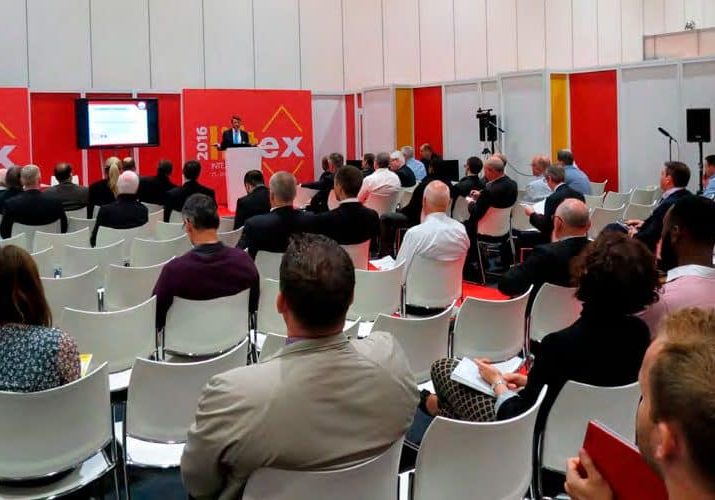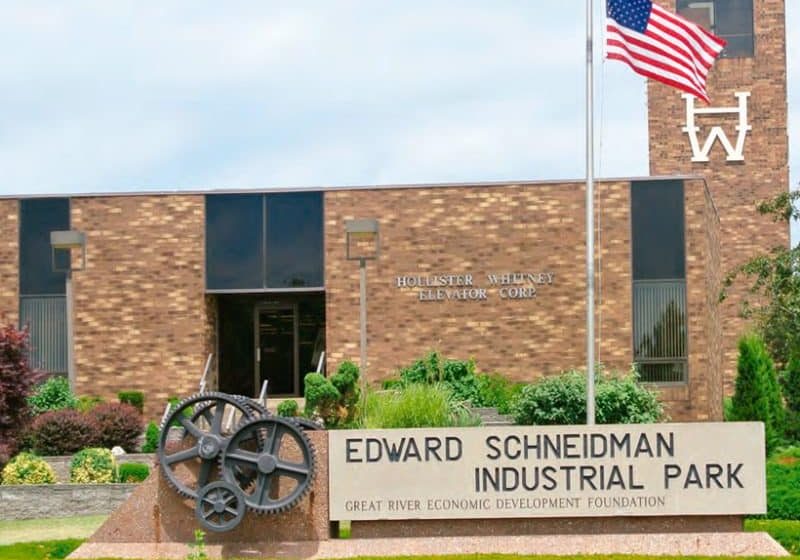Best Bureaucrat
Sep 1, 2016

Miami-Dade County has a chief elevator inspector it won’t want to lose in Michael A. Chavez.
In 2006, an elderly Miami couple in their 80s were stranded in their apartment. The lady was battling cancer and could not get to her doctor, because the elevator in their building was broken. The shaft was on the outside, connected to the building via a breezeway. So, they called for help.
“Help Me Howard” with Patrick Fraser of WSVN-TV, a local Miami television station, contacted Chief Elevator Inspector for Miami-Dade County Michael A. Chavez on their behalf. Chavez went to take a look at the elevator. It was his day off. When he got there, he saw that the elevator door was rusted through, and the guide on the bottom was missing. He recalls, “I kind of chewed on the elevator company for not coming up with an innovative idea of splicing on a piece of metal temporarily until they could get the permanent door built.” It was not a fire-rated door, so this was a feasible solution. The company took his advice and got the elevator running that day. The lady could now go see her doctor.
A couple years later, Miami New Times picked up the story and awarded Chavez with the “Best Bureaucrat” award. Chavez laughs at the thought, “I didn’t know whether to be complimented or insulted, because I don’t normally view ‘bureaucrat’ as a good word. But I guess that’s what I am.” Chavez credits his staff for actually communicating with him and moving on that case before WSVN-TV had contacted him. “It really doesn’t matter if it’s the citizen calling or someone else,” Chavez says. “We deal with it with the same expediency.”
Battling the Race to the Bottom
Chavez began his career straight out of college as an Otis mechanic in July 1972 when he was 22 years old. He had studied at Miami Dade College and Florida Atlantic University. He transitioned into sales in the late 1970s, and, for two years, worked as an Otis branch manager here in ELEVATOR WORLD’S hometown, Mobile, Alabama. Here, he was instrumental in putting together the vertical-transportation system for Providence Hospital. In 1985, he moved back home to serve as Miami-Dade County’s elevator engineer until he became its chief elevator inspector and manager of the Office of Elevator Safety in 2002. In 1993, his office received an award from the National Association of Counties for an elevator contract-management system it had designed and set up.
On its 125th anniversary in 2009, the American Society of Mechanical Engineers (ASME) recognized Chavez for his service to the Code and Standards Committee. He has been a voting member of the Society’s A17 National Interest Review Committee since 1986. In 2000, the Florida Legislature established the Florida Elevator Safety Technical Advisory Committee through Chapter 399 of the Florida Statutes. Chavez was one of the first members of that committee and served until it was dissolved by a sunset rule in 2002. In 2015, he was elected to NAESA International’s board of directors and board of certification. He says he enjoys engaging fellow board members and promoting ideas that will advance the industry: “It’s really a good thing to rub elbows with these guys and learn from them, as well as help them learn from me.”
When it comes to his work for the county, his title might as well be “chief elevator educator.” He says it can be a challenge to convince building owners that it’s in their best interest to adhere to the code:
“Either companies don’t want to comply with the code, or they think that their interpretation of the code allows them to do something that the code doesn’t allow them to do. We have building owners that seem to want to defy some of the requirements.”
Granted, building owners, along with elevator companies, politicians, judges and juries are not code experts. So, part of Chavez’s job is to instruct them on the law and safety. His educational efforts have met with success in the offices of political leaders and in the courts.
Chavez has also been confronted with darker forces. Condominiums present a bigger, if not more sinister, challenge. By nature, condominiums are owned by a group of people, and many of them in Miami-Dade County are home to elderly people with limited incomes. This situation is ripe for dysfunctional boards and self-serving managers. The boards do not see the need for what are perceived to be overbearing regulations. What is worse, there have been associations, Chavez says, “led by unscrupulous unit owners and unscrupulous managers who would abscond with funds that were set aside for major repairs in the future.” When the time came for those repairs, the money was not available. One such association mounted fines totaling approximately US$5 million. In cases like these, the courts get involved. For condo owners in these situations, it is a mercy to fall into the hands of a bureaucrat like Chavez. The spirit behind the laws and the fines “is not in taking over buildings or driving people out of business or putting people in the poor house,” he says. “It’s simply about making the elevators safe to operate and making them reliable, so that people will have them there when they want them — when they need them.”
While wrestling condominium associations with one arm, he battles elevator companies with the other. Like associations without a rainy-day fund, some elevator companies wait for problems to arise before they act. “I’ve seen a big change in maintenance,” says Chavez as he reflects on the industry. Elevator companies now engage more in call-back maintenance, because they are trying to do more with less. Chavez blames high labor costs. While noting that some companies are doing a good job of monitoring the status of their elevators electronically, he is wary of maintenance control programs (MCPs). He is afraid companies are simply “checking the boxes.” “Some of the companies have a good MCP and follow them — others don’t, without naming names.”
For Chavez, the issue revolves around accessibility and transparency. MCPs should be printed and kept in the machine rooms so that owners and inspectors can examine them. “Keeping those records on a computer system in the office doesn’t do anybody any good unless someone can access it.” But Chavez is neither anti-technology, nor nostalgic for the past. He believes virtual testing of equipment can be helpful if the results can be reviewed:
“I see the computerization of maintenance and performing some functions remotely through computer systems is probably going to be the technological leap that will enable companies to do a better job of maintenance, I think.”
This will still be a challenge to implement, because some jurisdictions do not allow for the privatization of inspections, and the trust issue of “sharing screens” would have to be dealt with on an information-technology level. “There’s no substitute for having hands on and eyes on,” Chavez says with a knowing chuckle. He maintains escalators and moving walks, for example, should not be virtually tested. “There is no one simple solution,” he says. “It’s going to be a complex thing to resolve a lot of these issues.”
Safety, First and Last
The mission of Chavez’s Office of Elevator Safety reads, “Safety is the last word in our name but is first in our actions, and is the core of what we do.” Chavez’s dedication to safety is reflected in his heroes, George Gibson and Bob Shepherd. Both men are dedicated to the industry and take safety seriously.
Coupled with his passion for safety is Chavez’s deep respect for both formal and informal education. He advises young people in the industry to “get an education and apply it to this field. Do the best you can and try to learn as much as you can from the older generation before they leave the industry.” This is critical when it comes to repairing equipment. Elevator technology has made for lighter, more energy-efficient units, but planned obsolescence has crept into an industry that once prided itself on making elevators that lasted longer than the buildings they serviced. Now, equipment is designed to be replaced, not repaired, when something breaks. Chavez says the knowledge to replace parts on old equipment, such as oil-bath sleeve bearings (which have been replaced with roller bearings), has been mostly lost with the older generation. “It’s just gonna be a challenge for young people to learn the business,” he says. “It’s been very rewarding for me all these years. But, I took the time to learn the code and learn as much as I could from the guys who were willing to teach it.”
The Future
Looking to the future, Chavez says he will probably open a consulting company when he retires from the county next year. As one of three remaining siblings, “I’m the only one in the family still working,” he says with a laugh.
Chavez enjoys his job very much. His technical and professional approach is balanced by a personal concern for the welfare of the citizens of Miami-Dade County. When Miami New Times made its own call concerning the elevators in a pair of condominium towers in 2008, it found Chavez “candid, responsive, and, apparently, personally troubled by the report.” Reflecting on his own work, he says the most rewarding aspect is to see people benefit from his efforts. “The thanks is really all the gift that we need,” he says. If Chavez is the best bureaucrat, what kind of consultant will he make?
Get more of Elevator World. Sign up for our free e-newsletter.








